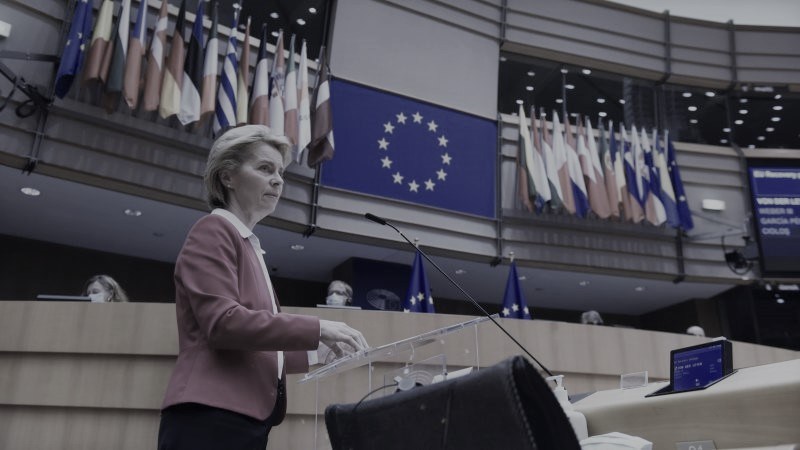BRUSSELS BEHIND THE SCENES
Weekly analysis and untold stories
With SAMUEL STOLTON
US needs to learn to talk to the US
Brussels’ bid make Poland and Hungary behave
The EU is preparing to approve the dispensation of multi-billion-euro recovery packages to Hungary and Poland in the forthcoming weeks, but the two countries may have to up their democratic standards to ever see money.
While over 50 billion euros has already been dished out across the bloc, the EU's outliers of Poland and Hungary have been left waiting in the wings, as EU officials examine the ways in which they can ensure the efficacy of the so-called conditionality mechanism. This week, those same officials began to brief journalists on the likelihood of approving Hungary and Poland’s recovery funds in the near future.
BRUSSELS BEHIND THE SCENES is a weekly newsletter which brings the untold stories about the characters driving the policies affecting our lives. Analysis not found anywhere else, The Brussels Times’ Samuel Stolton helps you make sense of what is happening in Brussels. If you want to receive Brussels behind the scenes straight to your inbox every week, subscribe to the newsletter here.
The conditionality mechanism would allow the EU Commission to withhold funds from the bloc's long-term budget and recovery fund, should various democratic abuses and rule of law violations be identified.
As part of the EU's recovery fund, Hungary is set to receive 7.2 billion euros and Poland 23.9 billion euros in grants. Should the payments be signed off as is expected by November, it is likely that the Commission will solicit specific assurances from Warsaw and Budapest that they will improve standards in their countries to avoid democratic backsliding.
For their part, Hungary and Poland, who have long provoked the ire of the EU Commission for a lack of judicial independence and allegations of corruption and anti-LGBT rules respectively, have always been apprehensive of the mechanism. Earlier this year, both countries filed a complaint with the European Court of Justice (ECJ) over the instrument. The countries believe that the EU already has sufficient legal mechanisms in place to deal with abuses against the rule of law, without having to rely on the conditionality mechanism.
However, the EU's Vice-President for Values and Transparency, Věra Jourová, has consistently said that the EU executive won’t wait around for the decision of the court before deciding to trigger the mechanism, which sources say could be invoked before the end of the month.
Moreover, the Commission has long come under political pressure from their institutional sibling, the European Parliament, which has rallied the cause for the conditionality mechanism to be as robustly enforced as is possible. In a June resolution, the Parliament lamented the Commission’s “failure to promptly and legally react” to various rule of law abuses in the EU.
Meanwhile, a contingent of MEPs from Parliament’s Civil Liberties committee concluded a fact-finding mission to Budapest last Friday, in order to “assess the respect for press and academic freedom, judicial independence, the rights of minorities and the wider rule of law context.”
Green MEP Gwendoline Delbos-Corfield, who led the trip to Hungary, said that the trip had allowed members to “formulate a broadly informed view of what is happening in various aspects - justice, education, media - of rule of law in Hungary.”
For Commission President von der Leyen, dealing with Hungary and Poland is not as simple as it first looks. The profile of the EU executive in those two countries rests largely on her ability to ensure that the funds make their ways to citizens and businesses in need, and that money is channelled into priority areas identified by Brussels.
However, von der Leyen’s standing more broadly across the bloc will be measured in terms of how much leeway, if any, she gives to Budapest and Warsaw, in a bid to appease the vitriol towards the Commission often levelled by their governments. Should she give too much, however, then it is her reputation in other parts of Europe that will suffer more.
BRUSSELS BEHIND THE SCENES is a weekly newsletter which brings the untold stories about the characters driving the policies affecting our lives. Analysis not found anywhere else, The Brussels Times’ Samuel Stolton helps you make sense of what is happening in Brussels. If you want to receive Brussels behind the scenes straight to your inbox every week, subscribe to the newsletter here.

